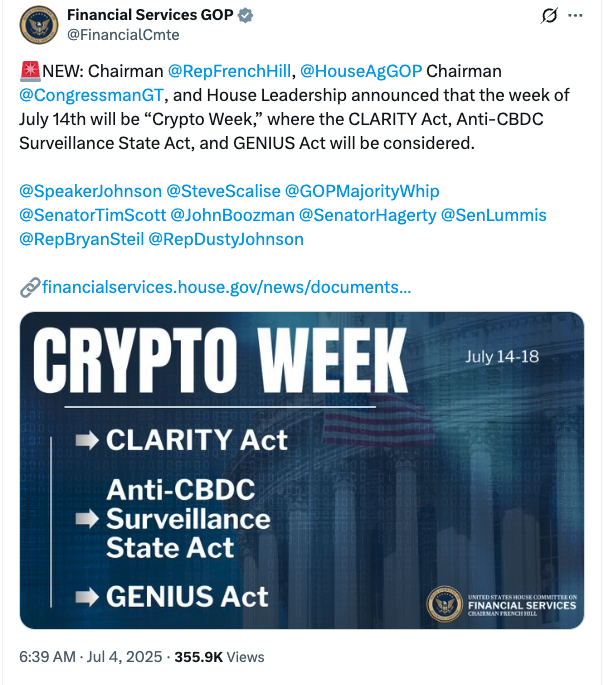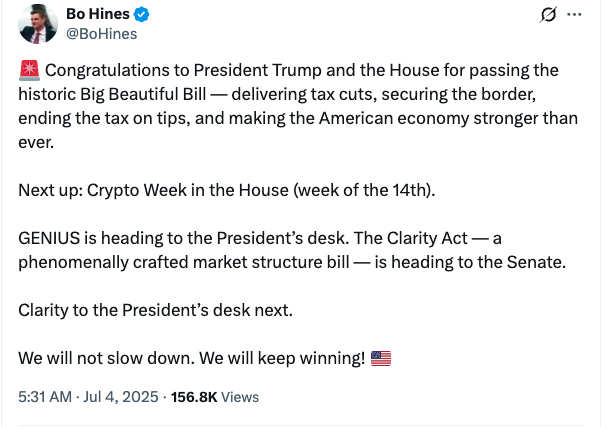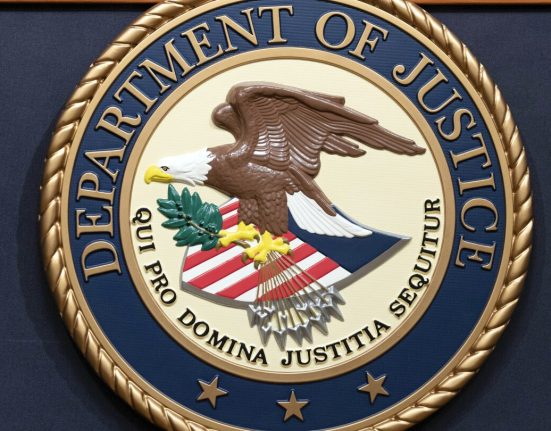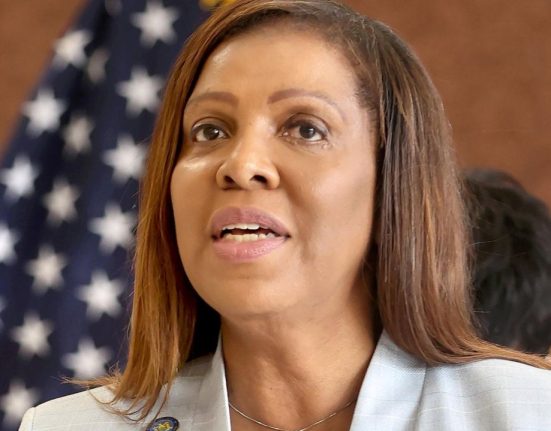US Republican House leaders have pledged to consider three key crypto bills starting in mid-July as part of a regulatory “Crypto Week.”
House Finance Committee Chair French Hill, House Agriculture Committee Chair Glenn Thompson and Speaker Mike Johnson said on Thursday that they’d use the week of July 14 to 18 to look over a crypto market structure bill, a stablecoin bill and a bill on central bank digital currencies (CBDCs).
“House Republicans are taking decisive steps to deliver the full scope of President Trump’s digital assets and cryptocurrency agenda,” Johnson said
“During ‘Crypto Week,’ the House looks forward to the timely consideration of three landmark pieces of legislation: the CLARITY Act, the Anti-CBDC Surveillance State Act, and the Senate’s GENIUS Act,” he added.

The party’s push comes as President Donald Trump said last month that he wants the stablecoin-regulating GENIUS Act passed as soon as possible, before Congress goes on a month-long break in August.
The bills would begin to deliver on Trump’s crypto-focused promises during his campaign, which the crypto industry heavily backed and bankrolled.
GENIUS considered over STABLE
The House is seemingly moving ahead with the Senate-led GENIUS Act over its own similar bill known as the STABLE Act, which the House Finance Committee passed in May but has yet to see a full floor vote.
The Senate passed the GENIUS Act with bipartisan support last month, meaning if the House passes the bill as-is, it’ll be sent to Trump to sign into law.
However, legal analysts at Pillsbury Law said on Wednesday that the House could amend “key provisions, including those related to issuer eligibility, state-federal oversight dynamics and compliance requirements.”
If that happens, it’ll be sent back to the Senate for a vote to approve the changes.
Lawyers at Troutman Pepper Locke said last Tuesday that the House and Senate may form a committee to reconcile the differences between the GENIUS and STABLE Acts, which would then need approval from both chambers before it’s sent to Trump.
A notable difference between the bills is around oversight, as the STABLE Act stipulates strict federal oversight of stablecoin issuers while the GENIUS Act allows for state supervision.
CLARITY could be next on Trump’s desk
A crypto market structure bill, called the CLARITY Act, could be the next on Trump’s desk after the House Financial Services Committee and the Agriculture Committee advanced it on June 10 to put it before the full House.
The bill, which still needs to pass the Senate, stipulates the jurisdiction that the Securities and Exchange Commission and the Commodity Futures Trading Commission have over crypto.
It would require most types of crypto exchanges to register with the CFTC and lays out rules for disclosure, customer asset segregation and recordkeeping.

Democrats have largely opposed both the GENIUS and CLARITY Acts, citing the growing crypto empire Trump and his family are building, which includes a crypto exchange, stablecoin and multiple crypto tokens.
GOP bill aims to ban CBDCs
The last bill the House will consider is the Anti-CBDC Surveillance State Act, which has an identical bill in the Senate in a bid to speed up the legislative process.
Related: New York AG urges Congress to bolster protections in crypto bills
The bill would prohibit the Federal Reserve from being able to test, develop, create or issue a digital currency in any form and stop the central bank from offering financial products directly to individuals.
The bill was introduced in the last Congress by House Majority Whip Tom Emmer, but it expired at the end of that Congress’s term after it passed the House in May 2024.
Emmer revived the bill in the current Congress, and the House Finance Committee passed its version of the bill in April, while the Senate version is still sitting in the chamber’s Banking Committee.
Magazine: Trump’s crypto ventures raise conflict of interest, insider trading questions







